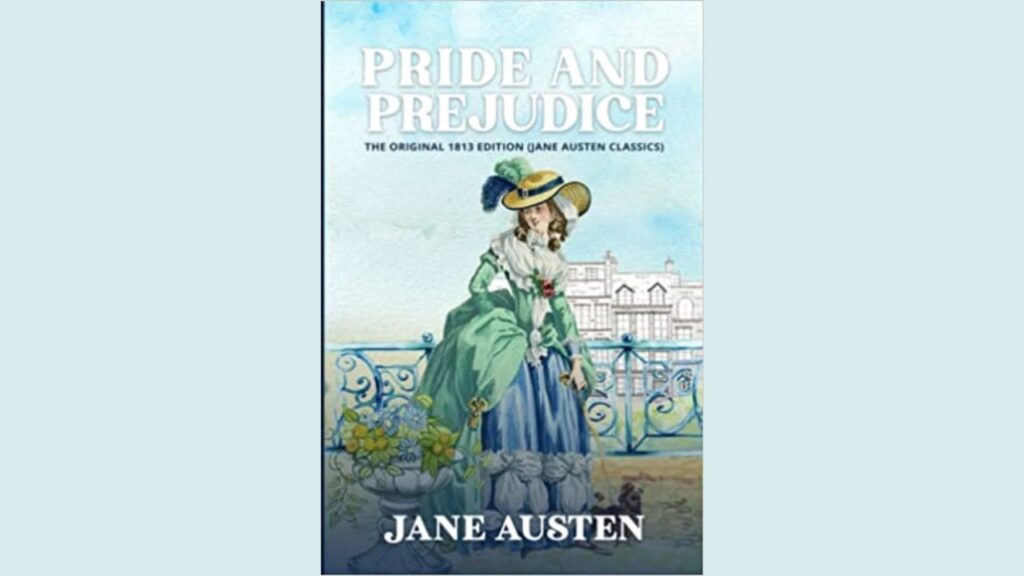
Introduction
Jane Austen’s Pride and Prejudice is not just a timeless romance but a sharp critique of the upper class and its rigid social structure. Through wit, irony, and satire, Austen exposes the vanity, hypocrisy, and superficiality of the aristocracy and gentry of Regency England. The novel satirizes the societal obsession with wealth, class distinctions, and marriage as a tool for social mobility, all while presenting characters who embody or challenge these values. This essay explores how Austen employs satire to critique the upper class, highlighting its pretentiousness, moral corruption, and misguided priorities.
The Absurdity of Social Class and Rank
Austen’s satire is most evident in her portrayal of the rigid class distinctions of her time. The upper class prides itself on birthright and wealth, often to the detriment of personal integrity and intelligence. Lady Catherine de Bourgh epitomizes this arrogance. As a wealthy noblewoman, she believes her rank gives her the authority to dictate the lives of others, particularly Elizabeth Bennet. She is comically self-important, speaking in a manner that emphasizes her own superiority while demeaning others: “I am no stranger to the particulars of your family circumstances.” Her entitlement, coupled with her lack of true wisdom, serves as a satirical portrayal of the aristocracy’s misplaced self-importance.
Similarly, Mr. Collins, the pompous clergyman, is another target of Austen’s satire. His excessive admiration for Lady Catherine and his self-serving religiosity expose the absurdity of social climbing and blind reverence to the aristocracy. His constant references to Lady Catherine’s opinions in his conversations demonstrate how individuals within the lower gentry seek validation from the upper class, even at the cost of their own dignity.
Marriage as a Satirical Lens
Marriage is a central theme in Pride and Prejudice, and Austen uses it as a lens to critique upper-class values. In Regency society, marriage was more of an economic transaction than a romantic endeavor, and Austen highlights the absurdity of this through multiple characters. Charlotte Lucas’s pragmatic approach to marriage—accepting Mr. Collins’ proposal despite his ridiculous nature—reflects the grim reality that women often had no choice but to marry for financial security. Through Charlotte, Austen satirizes a society that values economic stability over personal happiness.
Mrs. Bennet, another figure of ridicule, embodies the desperation of middle-class families to marry their daughters well. Her exaggerated concern for securing husbands, often at the expense of her daughters’ dignity, serves as a commentary on the mercenary nature of marriage in upper-class circles. Her statement, “A single man in possession of a good fortune, must be in want of a wife,” underscores the era’s materialistic approach to marriage, which Austen mocks throughout the novel.
The Superficiality of the Aristocracy
Austen exposes the shallow nature of upper-class individuals through characters like Caroline Bingley, who represents the vanity and snobbery of the elite. Caroline looks down on Elizabeth for her lower status, making snide remarks about her family’s lack of wealth and refinement. However, her own actions—flattery toward Darcy and her jealous manipulation—reveal her lack of true class. Austen uses Caroline’s character to highlight how superficial charm and social standing often take precedence over genuine character and morality in upper-class circles.
Furthermore, Mr. Darcy himself initially embodies the arrogance of the upper class, dismissing Elizabeth as “tolerable, but not handsome enough to tempt me.” However, his transformation into a more self-aware and considerate individual demonstrates Austen’s belief that true nobility is not inherited but earned through personal growth and integrity.
Moral Hypocrisy and the Upper Class
One of Austen’s most cutting critiques is directed at the moral hypocrisy of the aristocracy. Characters like George Wickham expose the contrast between outward appearances and true character. Wickham, though charming and well-spoken, is morally bankrupt, gambling away his money and seducing young women for financial gain. His ability to deceive others—particularly those in high society—exposes the upper class’s failure to judge people based on merit rather than superficial qualities.
Lady Catherine and Mr. Collins also embody this hypocrisy. Despite their supposed refinement, they lack true kindness, wisdom, and integrity. Lady Catherine meddles in others’ affairs with a sense of entitlement, while Mr. Collins preaches morality but seeks social advancement at all costs. Austen’s satire reveals that wealth and status do not equate to moral superiority, an idea that challenges the prevailing attitudes of her time.
Elizabeth Bennet: The Voice of Satirical Reason
Elizabeth Bennet serves as the novel’s satirical voice, using wit and irony to challenge the absurdities of the upper class. She refuses to conform to societal expectations, rejecting both Mr. Collins and initially Mr. Darcy, despite the security they offer. Her boldness in challenging Lady Catherine—“I am only resolved to act in that manner, which will, in my own opinion, constitute my happiness”—demonstrates her defiance of class-based oppression.
Through Elizabeth, Austen delivers her sharpest critiques. She sees through the pretensions of characters like Caroline Bingley and Mr. Collins, calling out their hypocrisy with humor and intelligence. Her ability to navigate the rigid social structure while maintaining her independence makes her the ideal medium for Austen’s social commentary.
Conclusion
Jane Austen’s Pride and Prejudice is far more than a love story; it is a satirical critique of the upper class and its flawed values. Through characters like Lady Catherine, Mr. Collins, and Caroline Bingley, Austen exposes the absurdity, hypocrisy, and superficiality of aristocratic society. By contrasting these figures with Elizabeth Bennet’s intelligence and moral strength, Austen advocates for a world where merit trumps birthright and where individuals are judged by their character rather than their social standing. Her masterful use of satire ensures that the novel remains a relevant and insightful commentary on class dynamics, making Pride and Prejudice a timeless critique of social pretensions.



